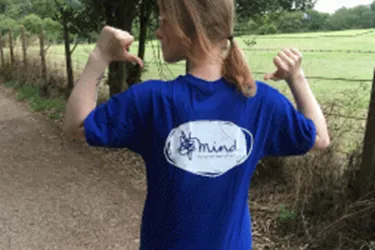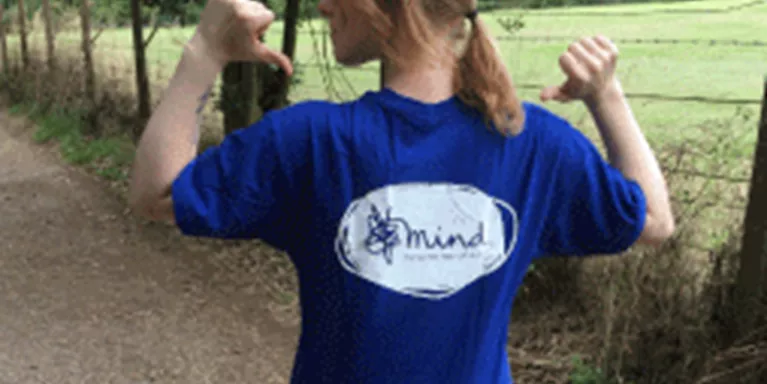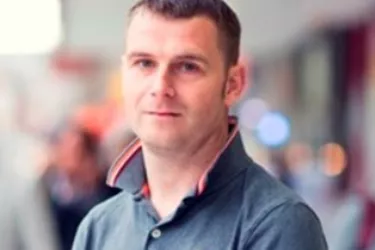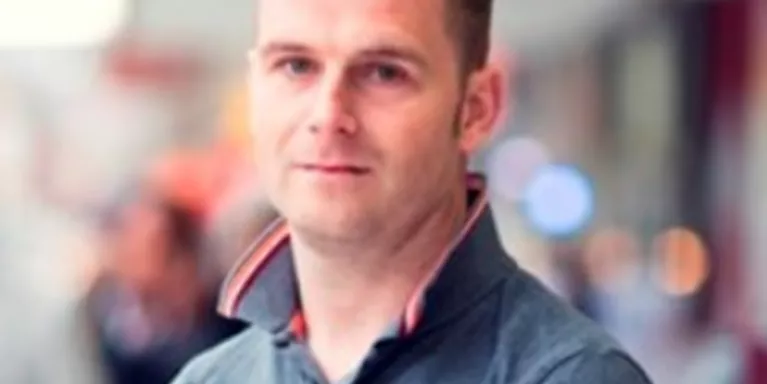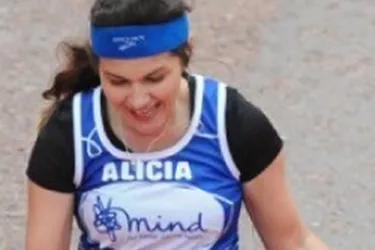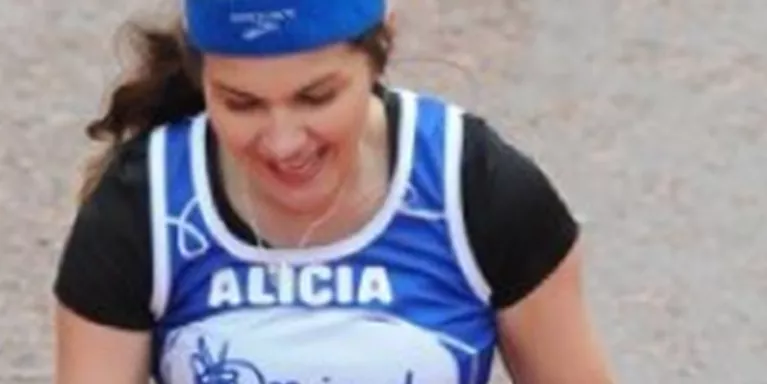How Long Covid challenged my mental health
When Brigid’s symptoms persisted longer than two weeks, she began to wonder whether she was imagining them.
This time of Covid-19 means that we have all been forced to play a waiting game. Waiting for lockdown to start, for loved ones to recover, for government restrictions to ease, to see if there will be a second wave. For myself, I have been waiting for my physical strength to return, and to date I have been waiting for five months. It has been an anxious time for me, but also one of personal insights.
I began to develop symptoms of Covid-19 on Saturday 14th March. In the morning I had a mild sore throat, by the afternoon I was in bed with a headache and exhaustion. The following Monday morning I worked for a couple of hours from home, as my workplace office had closed the previous week, but I soon realised that I was too unwell to continue. That week I additionally developed a mild fever, nausea, experienced loss of appetite, a strange metallic taste in my mouth and for two days pain in my pelvic area, legs and feet.
Five months on, my most consistent symptom has been debilitating fatigue. At times, I have only been able to walk short distances
I read the government website pages, I called NHS 111, I connected with my GP and concluded I had contracted ‘mild’ Covid-19 and anticipated that my recovery would take up to two weeks. However, whilst the intensity of the first week of symptoms eased, the fever, nausea and tiredness would return in a number of cycles, resulting in many weeks off work, and a number of thwarted returns. Five months on, my most consistent symptom has been debilitating fatigue. At times, I have only been able to walk short distances, often with a restricted gait, and very slowly. The latter has felt quite shocking as I was pretty active and fit beforehand.
It has been challenging to be unwell with such a new and little understood illness. In the early weeks of my being unwell, my most helpful interactions were with health professionals who were honest enough to say that they were learning day by day. I was fortunate that those I spoke with, despite no tests being available then, had the confidence to say that I had most likely contracted Covid-19. They shared that they were beginning to hear about many others recovering at home with lingering symptoms, including extreme tiredness. This contrasted with stories I heard from some others with similar long-term illness. They spoke of their symptoms being dismissed by medics as anxiety, particularly in the early weeks and months of the virus.
I have questioned how responsible I am for being unwell for so long. I have felt guilty about being on sick leave
This long illness has been accompanied by emotional challenges. Over the past few months I have wondered whether I am imagining my symptoms. I have questioned how responsible I am for being unwell for so long. I have felt guilty about being on sick leave and for my colleagues picking up my responsibilities. I’ve been alarmed by my loss of basic mobility. I have feared that the fatigue may never shift and that I might transition into chronic fatigue. My partner and I have indefinitely suspended our summer break, I’m not certain of being able to join the next stage of a professional training course due to commence in autumn.
I am surprised at how well I have moved up and down through these waves of fear, uncertainty, shock and frustration
I am surprised at how well I have moved up and down and through these waves of fear, uncertainty, shock and frustration. More than 20 years ago, I went through a personal crisis involving a prolonged period of life-halting depression, a terrible time of emotional numbness, despair and existential annihilation. I vowed to myself that I would do all that I could to prevent my return. It has been a long and slow journey away from that place, long-term therapy, yoga and meditation, development of musical and artistic skills, as well as coming together with others experiencing emotional breakdown. It has been a time of growth. I’ve learnt to articulate my difficulties, express myself creatively, take myself into nature, keep my body in movement and be more attuned to what I need. I learned about the limits of the medical approach to mental health and the need for me to be daily engaged and responsible for my wellbeing.
Over the past few months I have voiced my anxiety, fear and disappointment with people I am close to. When I didn’t have the concentration to read, and could only sit and move my hands, I bought an electric piano and began to relearn to play. I have picked up abandoned knitting projects. I maintained contact with family and friends, aged 4 to 77, through a shared drawing project. I have taken daily walks with my partner, be it to the end of the road or amongst the trees after driving to one of our local public parks. We have taken photographs of sunsets and clouds, just-born goslings, fresh spring leaves and neighbours’ front garden roses. We have enjoyed simple picnics with homemade pizza, almond and lemon biscuits or takeaway South Indian masala dosa. I’ve developed a routine of sitting and lying stretches that preserve precious energy
I’ve participated in group therapy on Zoom. I’ve joined an online community of 7,000 others with long tail Covid-19 symptoms and have been reminded of the power of patient expertise and activism, and the limits of western medicine. I’ve benefited from giving and receiving mutual advice, support and advocacy. I’ve also benefited from hard-won lessons from friends and family with ME and long-term fatigue.
Covid-19 and its aftermath, fatigue, has felt like being bodily ‘locked down’ during government ‘lock down’. My world has been very geographically small but conversely rich in connection and creativity. I have been reminded of the new paths I took following my mental health breakdown and have been thankful for this learning in my current long illness. I hope that I can continue to listen and respond, to be alert to what does and doesn’t serve me, to make informed decisions to support my continuing recovery, but also about future opportunities and paths.

Related Topics

Information and support
When you’re living with a mental health problem, or supporting someone who is, having access to the right information - about a condition, treatment options, or practical issues - is vital. Visit our information pages to find out more.
Share your story with others
Blogs and stories can show that people with mental health problems are cared about, understood and listened to. We can use it to challenge the status quo and change attitudes.










